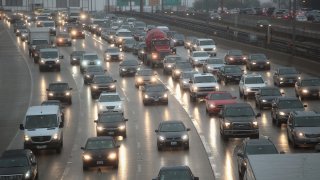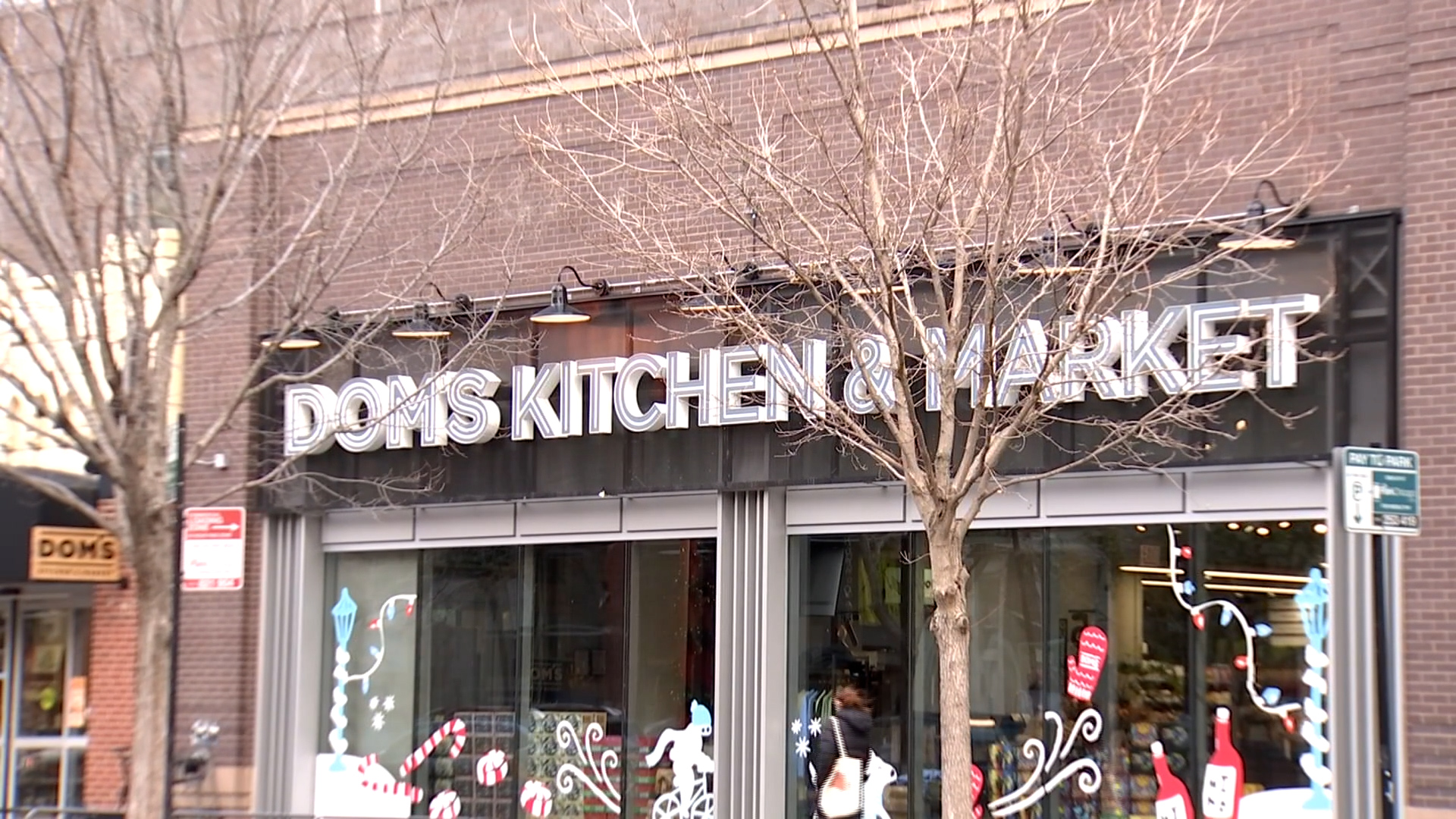
Chicago was the third most congested city in the U.S. in 2020, according to a new report, with one stretch of traffic on the Eisenhower Expressway ranking the worst nationwide.
Although the coronavirus pandemic caused fewer commutes, Chicago's traffic ranked the third worst nationwide, following New York City and Philadelphia, a report by INRIX, a transportation analytics firm, revealed Tuesday.
The busiest traffic corridor in the U.S. was found to be while traveling inbound on Interstate 290/294 to the Interstate 90/94 interchange, the report said.
In this stretch on the Eisenhower Expressway traveling eastbound, drivers saw an average 10-minute delay last year, which led to about 41 hours lost in 2020. In 2019, the delay caused Chicagoans 56 hours lost.
Feeling out of the loop? We'll catch you up on the Chicago news you need to know. Sign up for the weekly Chicago Catch-Up newsletter here.
The Edens Expressway stretch from eastbound Interstate 90 to Interstate 90/Interstate 94 ranked No. 15 nationwide. After Chicago, three New York City corridors ranked No. 2, No. 3 and No. 4 worst in the U.S., followed by two traffic stretches in San Francisco.
Chicago also ranked No. 7 of most congested cities in the world, with travelers losing approximately 86 hours sitting in traffic in 2020. However, Chicagoans were also down 22% in miles driven during the pandemic.
According to the new report, the cost of congestion for each Chicago area driver was about $1,279 in 2020, saving $889. The heavy traffic cost the city $4.6 billion, but saved officials $3 billion. Over the last year, collisions were down 5%.
Local
From February to April 2020, Chicago saw a 77% dip in trips to the downtown area, then down 48% by September and 55% by December.
Overall in 2020, the study showed travel declines across land, sea and air. However, early estimates could show that recreational cycling may have seen an initial climb worldwide as government lockdowns fell upon nations amid the coronavirus pandemic.
In Chicago, travel by train fell 57% in 2020, similar to that of New York City and Los Angeles. INTRIX calculated that given their findings, the hardest hit areas by the pandemic will likely be the last to recover during the "re-emergence period" from 2021 to 2022.



